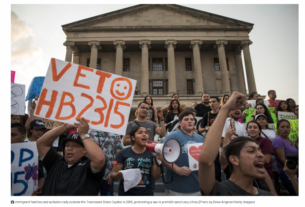Photo credit Peter Griffin
For generations, Americans have believed in a government defined by checks and balances, where no single branch holds absolute authority. But it’s time to confront an uncomfortable truth: the President of the United States now wields more power than any one person should—and that power is dangerously close to being unchecked.
Recent developments, from judicial rulings that shield presidents from prosecution to the executive branch’s growing ability to bypass Congress, have exposed a dangerous imbalance. The modern presidency has become an institution that—if occupied by a leader with little regard for democratic norms—can exert authority beyond what the Constitution ever intended.
The Courts Have Shielded Presidential Power
One of the most striking developments in the past year has been the Supreme Court’s ruling in Trump v. United States (2024), which granted presidents immunity from criminal prosecution for official acts. This ruling raises profound questions about accountability—if a sitting president cannot be prosecuted for actions taken while in office, what prevents them from engaging in outright abuses of power?
The ruling effectively creates a two-tiered legal system: one in which ordinary Americans are held accountable for their actions, while the president enjoys near-total impunity for decisions made while in office. If this precedent holds, a future president could claim legal protection for actions that stretch well beyond ethical governance.
Congress Cannot Keep the Executive in Check
While Congress is theoretically meant to rein in executive overreach, recent years have demonstrated how partisan gridlock and executive defiance have weakened this check. The president’s ability to:
- Ignore congressional subpoenas
- Fire inspectors general without cause
- Divert congressionally approved funds without legislative oversight
…has left lawmakers struggling to enforce their constitutional authority over the executive branch.
One of the clearest examples was the mass firing of multiple inspectors general—officials whose job is to provide independent oversight of the executive branch. When these watchdogs began investigating actions of the administration, they were removed. Without any real consequences for the president, the firing of government watchdogs becomes a tool for evading accountability.
The Rise of the Unitary Executive Theory
The “unitary executive” theory, a legal philosophy gaining traction in recent years, argues that the president has near-total control over the executive branch—including independent agencies meant to function outside presidential influence.
This theory effectively reduces the power of agencies that were designed to act as checks on executive overreach. It has also emboldened arguments that the president should be able to fire officials at will—including those investigating corruption and wrongdoing.
The Danger of an Unchecked Presidency
The Founding Fathers designed a system that would prevent monarchical rule—yet today, we are seeing a presidency with powers that would have been unthinkable in early America.
Without stronger checks, the next unscrupulous leader could:
✔ Override judicial rulings through executive action
✔ Expand executive orders into near-legislative power
✔ Dismiss government officials who oppose their agenda
✔ Delay or manipulate elections without immediate legal consequences
Where Do We Go from Here?
If Americans want to preserve democracy, reining in presidential power must become a national priority. Possible solutions include:
✔ Passing constitutional amendments explicitly limiting executive power
✔ Strengthening Congress’s ability to enforce oversight
✔ Implementing laws that ensure presidents remain accountable after leaving office
✔ Rejecting political tribalism that excuses abuses of power based on party loyalty
The reality is clear: The president of the United States has too much power. Left unchecked, that power will continue to grow—until it threatens the very foundation of the republic.
If we don’t act now, history may look back at this era and ask: Why didn’t Americans do something before it was too late?



